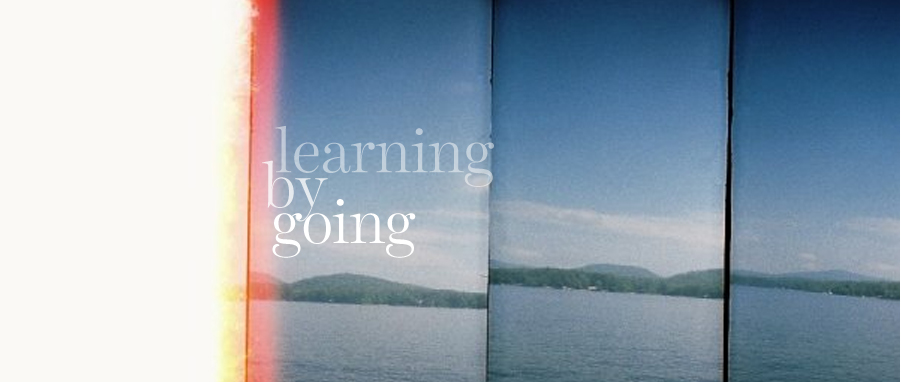by Breanne Martin Convenience is one of those things that is such an American ideal that challenging it sometimes causes people question your sanity. The problem is, when I think about the things that were created in the name of making slow processes go faster, I can't help but think that we've lost something important. Fast food, bought and consumed without leaving the car, takes the place of meals made out of real food and eaten around the table with loved ones. Exhaust-billowing vehicles get used to complete local errands that could easily be enjoyed from atop a bicycle or on foot. Thousands of dollars are spent on recreational vehicles used to power through the outdoors when a silent tent or a mountain bicycle might have sufficed. Heaven forbid we complete a routine task in a way that takes more time or worse, muscle power.
During a recent trip to the grocery store on our steel bicycles, my husband and I were carefully loading our week of food into our panniers, balancing unclipped helmets atop our heads. As we worked, the cashier puzzled at our slow method of covering the five miles between our house and the store, finally commenting, "Well, at least you don't have to walk!"
Thinking of the two functioning cars that we intentionally left in our suburban garage, I marveled that our society has become so dependent on gas-powered vehicles that it would be inconceivable that we might choose to use a bicycle to pick up some vegetables from the store. Little did he know that while I loathe grocery shopping in general, completing the task via the outdoors makes it something I savor. By the time I return home, my cheeks are rosy with exertion; I'm perhaps a bit breathless as I pack the bags in the house, but I'm aware of my body, motivated to feed it something real and delicious.
Born and raised in the SUV-driving, Costco-shopping suburbs, I am a newcomer to the idea that slow is better. Little by little, deliberate, laborious routines have had to painstakingly wrap themselves around my tendency to rush things, slowly rooting me into the here and now. After all, I finished my four year college degree in just more than two years---if anything, I am gifted at rushing things.
The truth is though, when I think of the most incredible times in my life, I am keenly aware of the time and work that went into each of those memories. The hours-long meal we ate with new friends in France, the grueling process of hauling literal tons of dirt in a wheelbarrow to create my own expanse of organic garden, the three months of pedaling a bicycle across the European continent. I could have hired a landscaper to tend to my yard or ridden a train across Europe, but tackling these endeavors using my own muscle power and without a time schedule etched them into my whole being in a way that will always be with me.
Things that move slowly force you to reduce the number of things you can accomplish, forcing dedication to the task at hand, and adding meaning to processes that once seemed inconsequential but somehow necessary. Hurried errands morph into a chance to get moving and experience the weather. Regrettable combo meals give way to cherished memories around a table, and social media falls second to the joy of a real conversation.
One of my fondest childhood memories finds me sitting in my grandfather's kitchen, eating French toast only moments out of the skillet, smothered with his home bottled apricot jam. I never liked jam much, but always knew there was something different about the stuff that came from grandpa's storage room. Of course, the store-bought jam we ate at home could never have rivaled the stuff that is carefully made by hand and spooned into enough jars to last the winter, but of course, I've never made my own because I don't know how. I keep saying I will ask my aging grandfather to teach me and spend the weekend driving to his house to visit and learn, but I just haven't seemed to find the time. When I get there, I know he will drop his plans and spend the weekend sharing his secrets to jam and life---he's never been much for convenience. He's 80 years old this year, and suddenly I'm keenly aware if I don't slow down and make time soon, I'll never get the chance.



















































